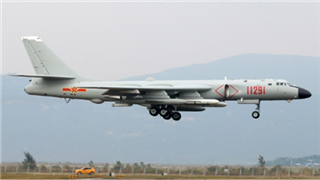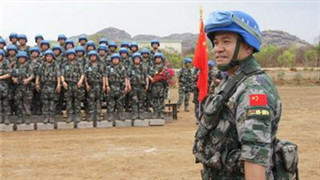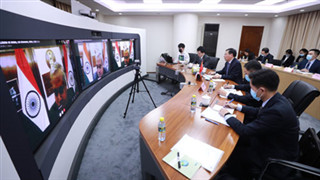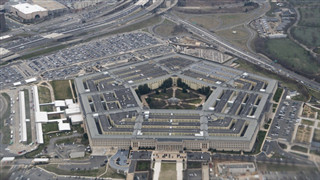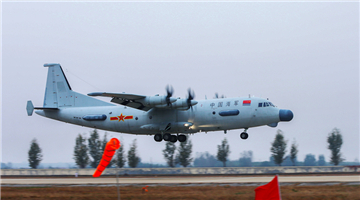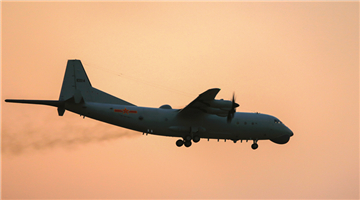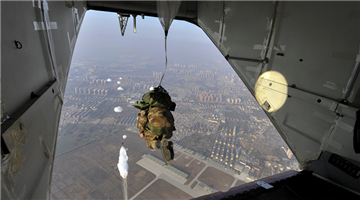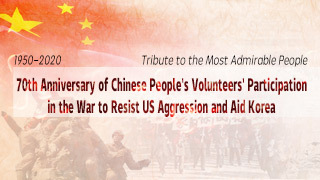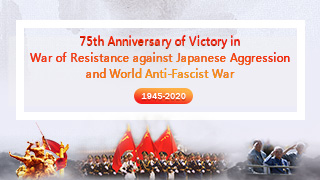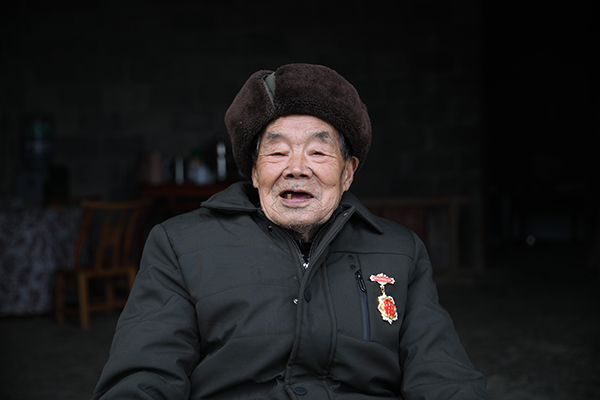
By Zhang Ruijie
Huang Zhongmao, an army veteran who had fought the War to Resist US Aggression and Aid Korea (1950-1953), now lives in a remote village in western Hubei Province, China, with his son Huang Houyong.
Huang Zhongmao joined the war in October 1950 as a soldier with the 124th Division under the 42nd Corps of the Chinese People's Volunteers Army (CPVA).
On October 25, 1950, the Battle of Huangcaoling broke out. This was the first battle of the 42nd Corps during the War to Resist US Aggression and Aid Korea, which turned out to be a memory Huang Zhongmao dared not touch easily.
"When the US planes bombarded us, the shells poured down and exploded around us. We were buried in dust from gigantic explosions. The hole was more than 10 inches deep, and then we were dug out by our comrades. Many comrades were beyond recognition from deadly injuries. For many years, I can't stand recalling the scene," Huang sobbed. “At that time, I had forgotten to be afraid and only knew that I was still alive,” he added.
"Even at that time, it is the only faith we had to hold my ground and never retreat a single inch from the land" said Huang.
During the war, the transport convoy that Huang had been assigned to was discovered by the enemy in a mission to escort strategic supplies. The enemy fired flare guns, lighting up the dead grass and leaves around the convoy. US bombers flew in following the signal in the dark night.
"The flames around the trucks will inevitably attract enemy planes and we might lose the whole convoy. Before I could think about it, I jumped out of the car and used my clothes to fight the fire," Huang said.
Seeing the fire was put out, the enemy planes flew a few times over their heads, failing to find their truck. Therefore the strategic materials were safely transported to the front line. Later, Huang won the Second-Class Merit for risking his life protecting the loaded convoy.
In 1949, Huang Zhongmao joined the Chinese People's Liberation Army and then went to the northeast China with the troops to participate in the reclamation. "The troops put the guns and cannons in the warehouse and began to grow corn and soybeans," Huang said.
In 1956, Huang was honorably discharged from the military and returned to his hometown. "I chose to be transferred to civilian work," Huang recalled that at that time the country called on them to take the lead in building the rural areas. Huang returned to the land where he was born and raised, picked up a hoe and became a farmer.
"I led the villagers to reclaim the land. Seeing the people around me have land to grow crops and their life become more prosperous, I felt very happy," Huang's words are full of affection for that land.
In the eyes of his son Huang Houyong, Huang Zhongmao is ordinary but magnificent. "When I was a child, I thought it was fun to hear my father telling stories about battles. When I grew up, I came to understand how difficult it was for him to go through that. I often educate my children to learn from their grandfather, hoping that they can join the army to defend our motherland when they grow up ," said Huang Houyong, affectionately.

